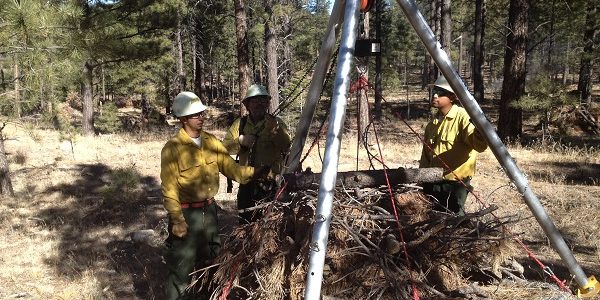Fire Research and Collaborations

Building and sharing knowledge
Wildfires are increasing in size and severity, threatening homes, communities, public health, water supplies, as well as local and regional economies. Communication and collaboration among scientists, land managers, and the public is needed in order to use science-based, effective, and efficient solutions to tackle this challenge.
The Joint Fire Science Knowledge Exchanges connect scientists, land managers, and the public. This helps assure that scientists are addressing the most pressing questions and managers are applying the most recent science in their efforts to protect communities and critical natural resources. The Guild is deeply involved in the Southwest Fire Science Consortium, the Southern Rockies Exchange, the North Atlantic Fire Science Exchange, and the Blue Ridge Fire Learning Network.
The Guild also has a long history of producing research and science syntheses to aid the ecological use of fire. Some examples include:
- Our report on fuel treatments in Southwestern mixed conifer forests has helped managers plan treatments and return fire to this forest type.
- Our work on treatment effectiveness in the wildland urban interface helped raise the bar for community wildfire protection plans.
- In collaboration with the US Forest Service and Santa Clara Pueblo, we examined the ecological effects of slash pile burning.
- More recently our work has focused on reducing unplanned human caused wildfires and encouraging prescribed fire on private lands. Expanding more into the Southeast United States, we are dissseminating scientific literature into accessible management tools for land managers and private forest landowners.
Research highlights
- Reducing human-caused ignitions
- SW 2021 Wildfire Season
- Investing in Wildfire Prevention
- Controlled Burning on Private Land in New Mexico
- Assessment of pile burning
- Effectiveness of Wildfire Mitigation in the WUI
- Fuels treatment practices for mixed conifer forest
- Bat Responses to Silviculture Treatments and Wildfire
Stay Informed
about our recent projects and upcoming events.
